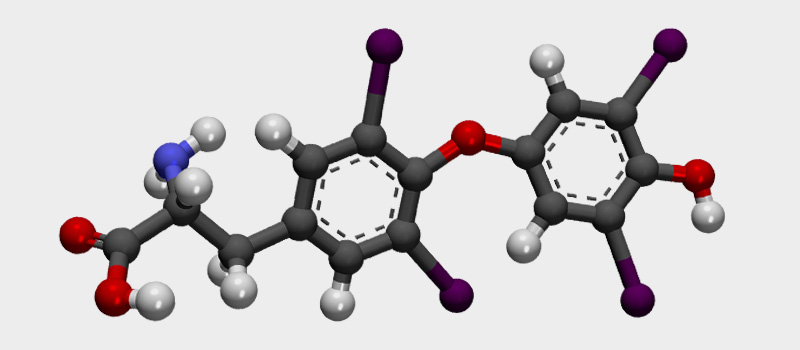13 June, 2018
Postoperative hypothyroidism: Symptoms, causes and what to do

As we have mentioned previously, levels of thyroid hormone/levothyroxine need to be adequate after thyroid surgery. In spite of physicians seeing patients periodically for follow-up of symptoms and testing, primarily with thyrotropin (TSH), in some patients, TSH levels will remain slightly elevated on apparently correct doses of thyroid hormone. These patients, with low levothyroxine or high TSH levels, experience the unpleasant symptoms of postoperative or subclinical hypothyroidism.
WHAT ARE THE MOST COMMON SYMPTOMS OF POSTOPERATIVE HYPOTHYROIDISM?
The symptoms of subclinical hypothyroidism are varied and may be confused with the symptoms of other conditions. The most common include: abnormal fatigue and excessive sleeping, constipation, joint pain, lethargy and irritability.
CAUSES OF POSTOPERATIVE HYPOTHYROIDISM
Several factors have been reported that might interfere in the absorption of thyroid hormone, which is the main cause of postoperative hypothyroidism.
o Poor compliance with the prescribed regime
Firstly and most notably, there is poor compliance with the prescribed regimen or administration under inadequate conditions. In other words, the patient forgets to take the medication or takes it randomly or on a full stomach. For this reason, it is very important to remember that levothyroxine (thyroid hormone) must be administered under specific conditions in order to be absorbed optimally and in equal quantities each day. These conditions are strict but very easy to meet.
“The most common cause of postoperative hypothyroidism is poor compliance with the regimen prescribed by the physician or administration under inadequate conditions (at random or on a full stomach)”
How to take levothyroxine (thyroid hormone) correctly
It must be taken every day without exception (unless otherwise prescribed) and while fasting (on an empty stomach). It is therefore advisable to take it when you wake up in the morning, to avoid mistakes and achieve uniform absorption.
o Inappropriately low dose of levothyroxine
The second most common cause of postoperative hypothyroidism is that the patient is taking an inappropriately low dose of levothyroxine. In this case, the specialist physician must detect this and adjust the dose to meet the patient’s needs.
o Other causes: coeliac disease, gastritis or other medications
Other less likely causes of subclinical hypothyroidism include malabsorption of the medication due to coeliac disease, gastritis or taking other medication such as calcium, iron or antihistamines.



 “The most common cause of postoperative hypothyroidism is poor compliance with the regimen prescribed by the physician or administration under inadequate conditions (at random or on a full stomach)”
“The most common cause of postoperative hypothyroidism is poor compliance with the regimen prescribed by the physician or administration under inadequate conditions (at random or on a full stomach)”


